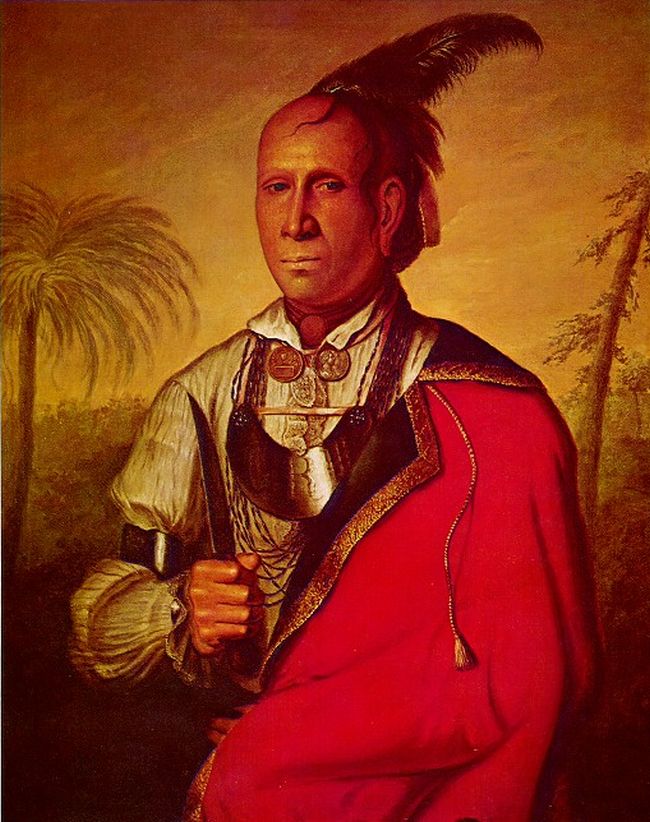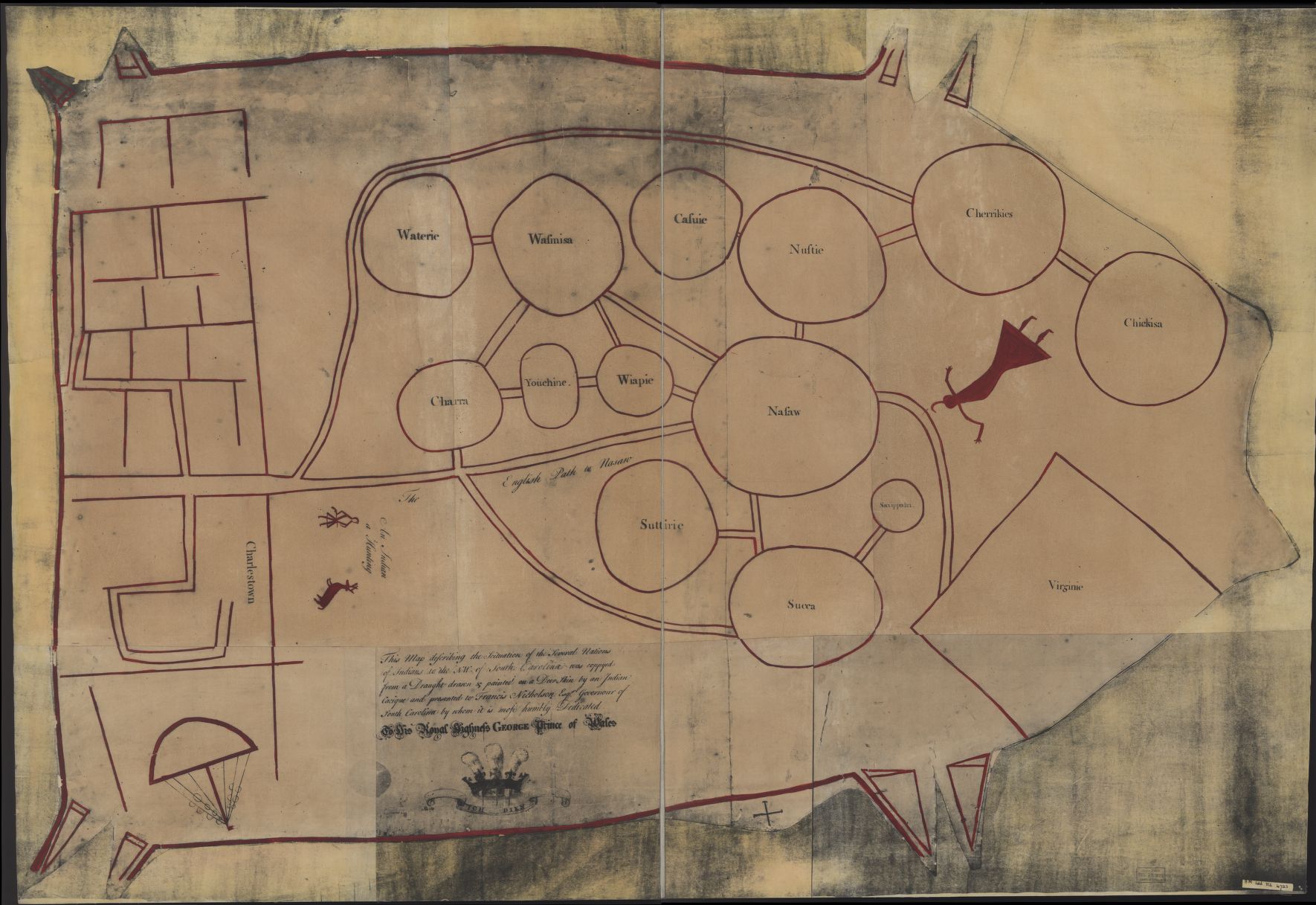|
Charles Thompson (Cherokee Chief)
Charles Thompson (Utselata, or Oochelata also ᎤᏤᎴᏛ in Cherokee) was born to a full-blood Cherokee father and a European-American mother in the Southeastern United States. According to one writer, the mother had been kidnapped at a young age and raised by Cherokees. She never learned the identities of her real parents nor when or where she was born. As a result, she did not speak English and could communicate only in Cherokee.Meserve, John B"Chief Lewis Downing and Chief Charles Thompson (Oochalata.)" ''Chronicles of Oklahoma''. Vol. 16, No. 3 September 1938. Retrieved July 17, 2013. The family migrated west to Indian Territory during the Trail of Tears, and settled near the present-day site of Lake Spavinaw, in what is now Delaware County, Oklahoma. Education Utselata, as he was called until later in life, attended the Baptist Mission School, where he was strongly influenced by the Reverend Evan Jones and John B. Jones. He joined the Baptist church during this time.Conley, ... [...More Info...] [...Related Items...] OR: [Wikipedia] [Google] [Baidu] |
Cherokee
The Cherokee (; chr, ᎠᏂᏴᏫᏯᎢ, translit=Aniyvwiyaʔi or Anigiduwagi, or chr, ᏣᎳᎩ, links=no, translit=Tsalagi) are one of the indigenous peoples of the Southeastern Woodlands of the United States. Prior to the 18th century, they were concentrated in their homelands, in towns along river valleys of what is now southwestern North Carolina, southeastern Tennessee, edges of western South Carolina, northern Georgia (U.S. state), Georgia, and northeastern Alabama. The Cherokee language is part of the Iroquoian languages, Iroquoian language group. In the 19th century, James Mooney, an early American Ethnography, ethnographer, recorded one oral tradition that told of the Tribe (Native American), tribe having migrated south in ancient times from the Great Lakes region, where other Iroquoian Peoples, Iroquoian peoples have been based. However, anthropologist Thomas R. Whyte, writing in 2007, dated the split among the peoples as occurring earlier. He believes that the ori ... [...More Info...] [...Related Items...] OR: [Wikipedia] [Google] [Baidu] |
Principal Chief Of The Cherokee Nation
Principal Chief is today the title of the chief executives of the Cherokee Nation, of the Eastern Band of Cherokee Indians, and of the United Keetoowah Band of Cherokee Indians, the three federally recognized tribes of Cherokee. In the eighteenth century, when the people were primarily organized by clans and towns, they would appoint a leader for negotiations with the Europeans. They called him ''Uku'', or "First Beloved Man". The title of "Principal Chief" was created in 1794, when the Cherokee began to formalize a more centralized political structure. They founded the original Cherokee Nation. The Cherokee Nation–East adopted a written constitution in 1827, creating a government with three branches: legislative, executive, and judicial. The Principal Chief was elected by the National Council, which was the legislature of the Nation. The Cherokee Nation–West adopted a similar constitution in 1833. In 1839 most of the reunited nation was reunited in Indian Territory, after for ... [...More Info...] [...Related Items...] OR: [Wikipedia] [Google] [Baidu] |
People Of Indian Territory
A person ( : people) is a being that has certain capacities or attributes such as reason, morality, consciousness or self-consciousness, and being a part of a culturally established form of social relations such as kinship, ownership of property, or legal responsibility. The defining features of personhood and, consequently, what makes a person count as a person, differ widely among cultures and contexts. In addition to the question of personhood, of what makes a being count as a person to begin with, there are further questions about personal identity and self: both about what makes any particular person that particular person instead of another, and about what makes a person at one time the same person as they were or will be at another time despite any intervening changes. The plural form "people" is often used to refer to an entire nation or ethnic group (as in "a people"), and this was the original meaning of the word; it subsequently acquired its use as a plural form of p ... [...More Info...] [...Related Items...] OR: [Wikipedia] [Google] [Baidu] |
Cherokee Nation Confederate States Military Personnel
The Cherokee (; chr, ᎠᏂᏴᏫᏯᎢ, translit=Aniyvwiyaʔi or Anigiduwagi, or chr, ᏣᎳᎩ, links=no, translit=Tsalagi) are one of the indigenous peoples of the Southeastern Woodlands of the United States. Prior to the 18th century, they were concentrated in their homelands, in towns along river valleys of what is now southwestern North Carolina, southeastern Tennessee, edges of western South Carolina, northern Georgia, and northeastern Alabama. The Cherokee language is part of the Iroquoian language group. In the 19th century, James Mooney, an early American ethnographer, recorded one oral tradition that told of the tribe having migrated south in ancient times from the Great Lakes region, where other Iroquoian peoples have been based. However, anthropologist Thomas R. Whyte, writing in 2007, dated the split among the peoples as occurring earlier. He believes that the origin of the proto-Iroquoian language was likely the Appalachian region, and the split between Norther ... [...More Info...] [...Related Items...] OR: [Wikipedia] [Google] [Baidu] |
Baptists From Oklahoma
Baptists form a major branch of Protestantism distinguished by baptizing professing Christian believers only (believer's baptism), and doing so by complete immersion. Baptist churches also generally subscribe to the doctrines of soul competency (the responsibility and accountability of every person before God), ''sola fide'' (salvation by just faith alone), ''sola scriptura'' (scripture alone as the rule of faith and practice) and congregationalist church government. Baptists generally recognize two ordinances: baptism and communion. Diverse from their beginning, those identifying as Baptists today differ widely from one another in what they believe, how they worship, their attitudes toward other Christians, and their understanding of what is important in Christian discipleship. For example, Baptist theology may include Arminian or Calvinist beliefs with various sub-groups holding different or competing positions, while others allow for diversity in this matter within the ... [...More Info...] [...Related Items...] OR: [Wikipedia] [Google] [Baidu] |
1891 Deaths
Events January–March * January 1 ** Paying of old age pensions begins in Germany. ** A strike of 500 Hungarian steel workers occurs; 3,000 men are out of work as a consequence. **Germany takes formal possession of its new African territories. * January 2 – A. L. Drummond of New York is appointed Chief of the Treasury Secret Service. * January 4 – The Earl of Zetland issues a declaration regarding the famine in the western counties of Ireland. * January 5 **The Australian shearers' strike, that leads indirectly to the foundation of the Australian Labor Party, begins. **A fight between the United States and Indians breaks out near Pine Ridge agency. **Henry B. Brown, of Michigan, is sworn in as an Associate Justice of the Supreme Court. **A fight between railway strikers and police breaks out at Motherwell, Scotland. * January 6 – Encounters continue, between strikers and the authorities at Glasgow. * January 7 ** General Miles' forces ... [...More Info...] [...Related Items...] OR: [Wikipedia] [Google] [Baidu] |
Year Of Birth Missing
A year or annus is the orbital period of a planetary body, for example, the Earth, moving in its orbit around the Sun. Due to the Earth's axial tilt, the course of a year sees the passing of the seasons, marked by change in weather, the hours of daylight, and, consequently, vegetation and soil fertility. In temperate and subpolar regions around the planet, four seasons are generally recognized: spring, summer, autumn and winter. In tropical and subtropical regions, several geographical sectors do not present defined seasons; but in the seasonal tropics, the annual wet and dry seasons are recognized and tracked. A calendar year is an approximation of the number of days of the Earth's orbital period, as counted in a given calendar. The Gregorian calendar, or modern calendar, presents its calendar year to be either a common year of 365 days or a leap year of 366 days, as do the Julian calendars. For the Gregorian calendar, the average length of the calendar ye ... [...More Info...] [...Related Items...] OR: [Wikipedia] [Google] [Baidu] |
Dennis Bushyhead
Dennis Wolf Bushyhead (Cherokee, March 18, 1826 – February 4, 1898) was a leader in the Cherokee Nation after they had removed to Indian Territory. Born into the Wolf Clan, he was elected as Principal Chief, serving two terms, from 1879 to 1887. Biography Dennis Wolf Bushyhead was born on Mouse Creek near present-day Cleveland, Tennessee in the eastern part of the state. He was the oldest son of Rev. Jesse Bushyhead, whose Cherokee name was ''Unaduti''.Foreman, Carolyn Ross. "Aunt Eliza of Tahlequah." ''Chronicles of Oklahoma''. Vol. 9, No. 1 (March, 1931). Retrieved June 19, 2013. His mother Eliza Wilkinson of the Wolf Clan was from |
William P
William is a masculine given name of Norman French origin.Hanks, Hardcastle and Hodges, ''Oxford Dictionary of First Names'', Oxford University Press, 2nd edition, , p. 276. It became very popular in the English language after the Norman conquest of England in 1066,All Things William"Meaning & Origin of the Name"/ref> and remained so throughout the Middle Ages and into the modern era. It is sometimes abbreviated "Wm." Shortened familiar versions in English include Will, Wills, Willy, Willie, Liam, Bill, and Billy. A common Irish form is Liam. Scottish diminutives include Wull, Willie or Wullie (as in Oor Wullie or the play ''Douglas''). Female forms are Willa, Willemina, Wilma and Wilhelmina. Etymology William is related to the German given name ''Wilhelm''. Both ultimately descend from Proto-Germanic ''*Wiljahelmaz'', with a direct cognate also in the Old Norse name ''Vilhjalmr'' and a West Germanic borrowing into Medieval Latin ''Willelmus''. The Proto-Germa ... [...More Info...] [...Related Items...] OR: [Wikipedia] [Google] [Baidu] |
Cherokee Nation (19th Century)
The Cherokee Nation (Cherokee: ᏣᎳᎩᎯ ᎠᏰᎵ ''Tsalagihi Ayeli'' or ᏣᎳᎩᏰᎵ ''Tsalagiyehli''), also known as the Cherokee Nation of Oklahoma, is the largest of three Cherokee federally recognized tribes in the United States. It was established in the 20th century and includes people descended from members of the Old Cherokee Nation who relocated, due to increasing pressure, from the Southeast to Indian Territory and Cherokee who were forced to relocate on the Trail of Tears. The tribe also includes descendants of Cherokee Freedmen, Absentee Shawnee, and Natchez Nation. As of 2021, over 400,000 people were enrolled in the Cherokee Nation. Headquartered in Tahlequah, Oklahoma, the Cherokee Nation has a reservation spanning 14 counties in the northeastern corner of Oklahoma. These are Adair, Cherokee, Craig, Delaware, Mayes, McIntosh, Muskogee, Nowata, Ottawa, Rogers, Sequoyah, Tulsa, Wagoner, and Washington counties. History Late 18th century throug ... [...More Info...] [...Related Items...] OR: [Wikipedia] [Google] [Baidu] |
Cherokee Language
200px, Number of speakers Cherokee or Tsalagi ( chr, ᏣᎳᎩ ᎦᏬᏂᎯᏍᏗ, ) is an endangered-to- moribund Iroquoian language and the native language of the Cherokee people. '' Ethnologue'' states that there were 1,520 Cherokee speakers out of 376,000 Cherokee in 2018, while a tally by the three Cherokee tribes in 2019 recorded ~2,100 speakers. The number of speakers is in decline. About eight fluent speakers die each month, and only a handful of people under the age of 40 are fluent. The dialect of Cherokee in Oklahoma is "definitely endangered", and the one in North Carolina is "severely endangered" according to UNESCO. The Lower dialect, formerly spoken on the South Carolina–Georgia border, has been extinct since about 1900. The dire situation regarding the future of the two remaining dialects prompted the Tri-Council of Cherokee tribes to declare a state of emergency in June 2019, with a call to enhance revitalization efforts. Around 200 speakers of the Easter ... [...More Info...] [...Related Items...] OR: [Wikipedia] [Google] [Baidu] |


_1938.jpg)




